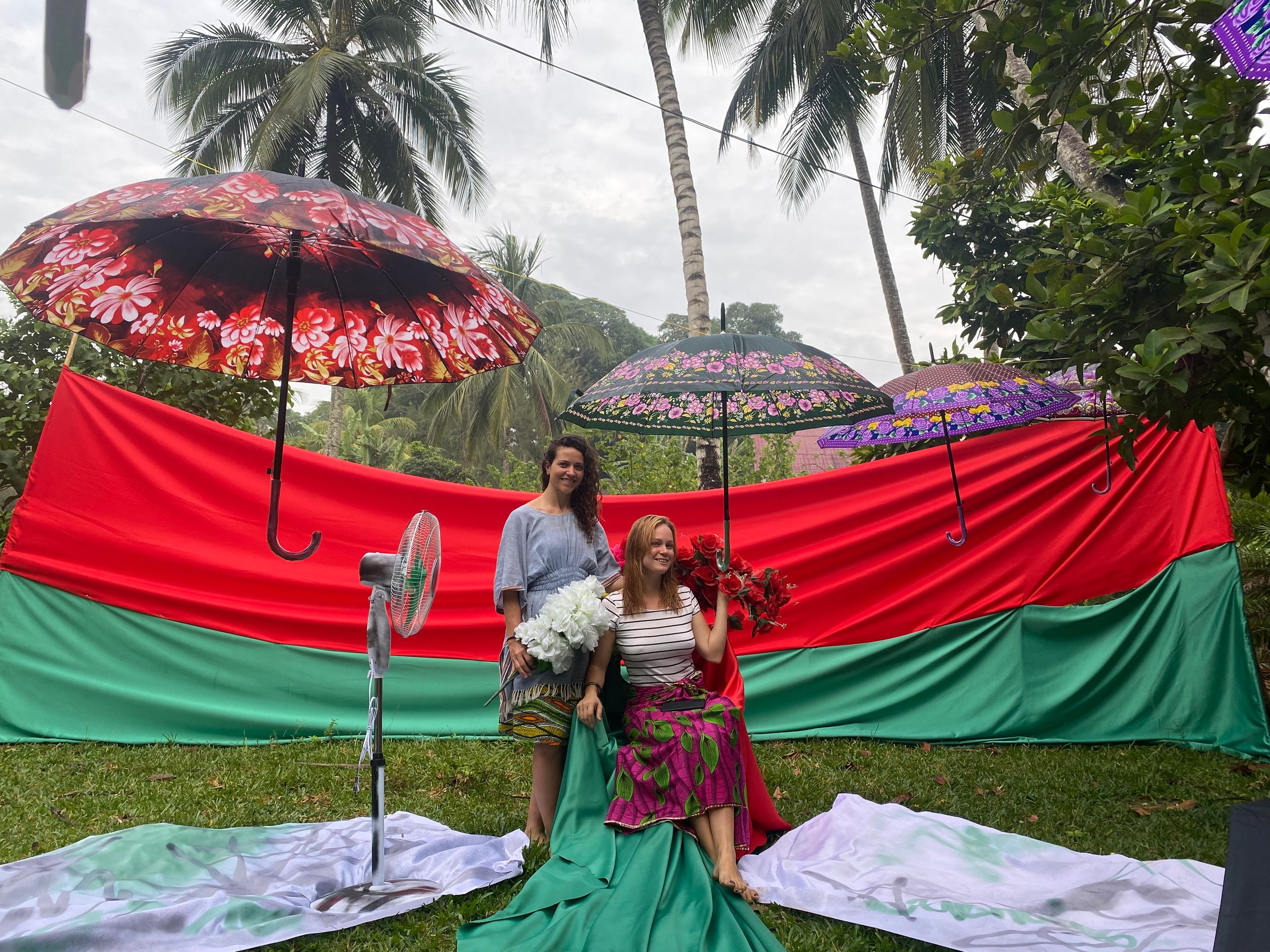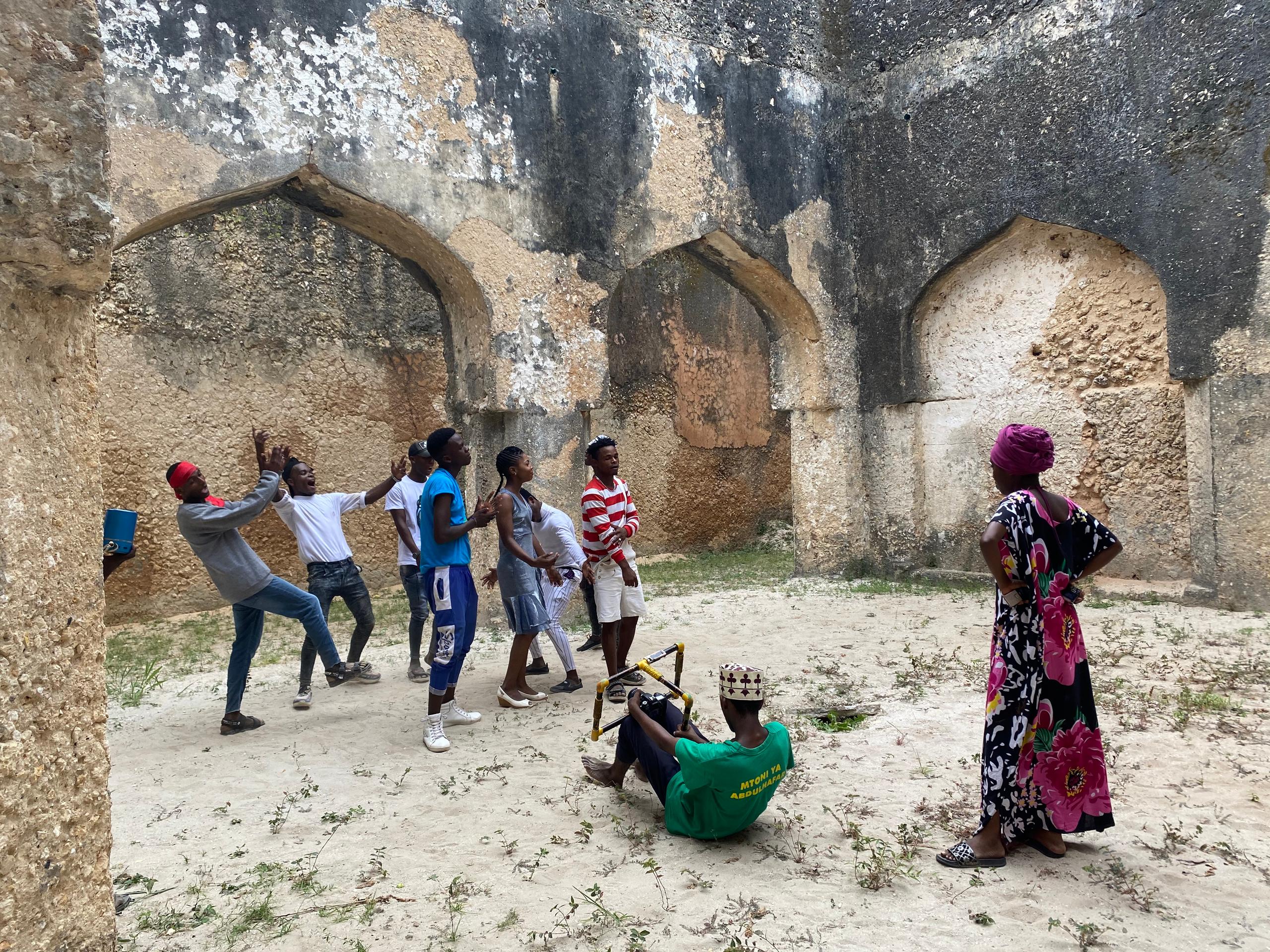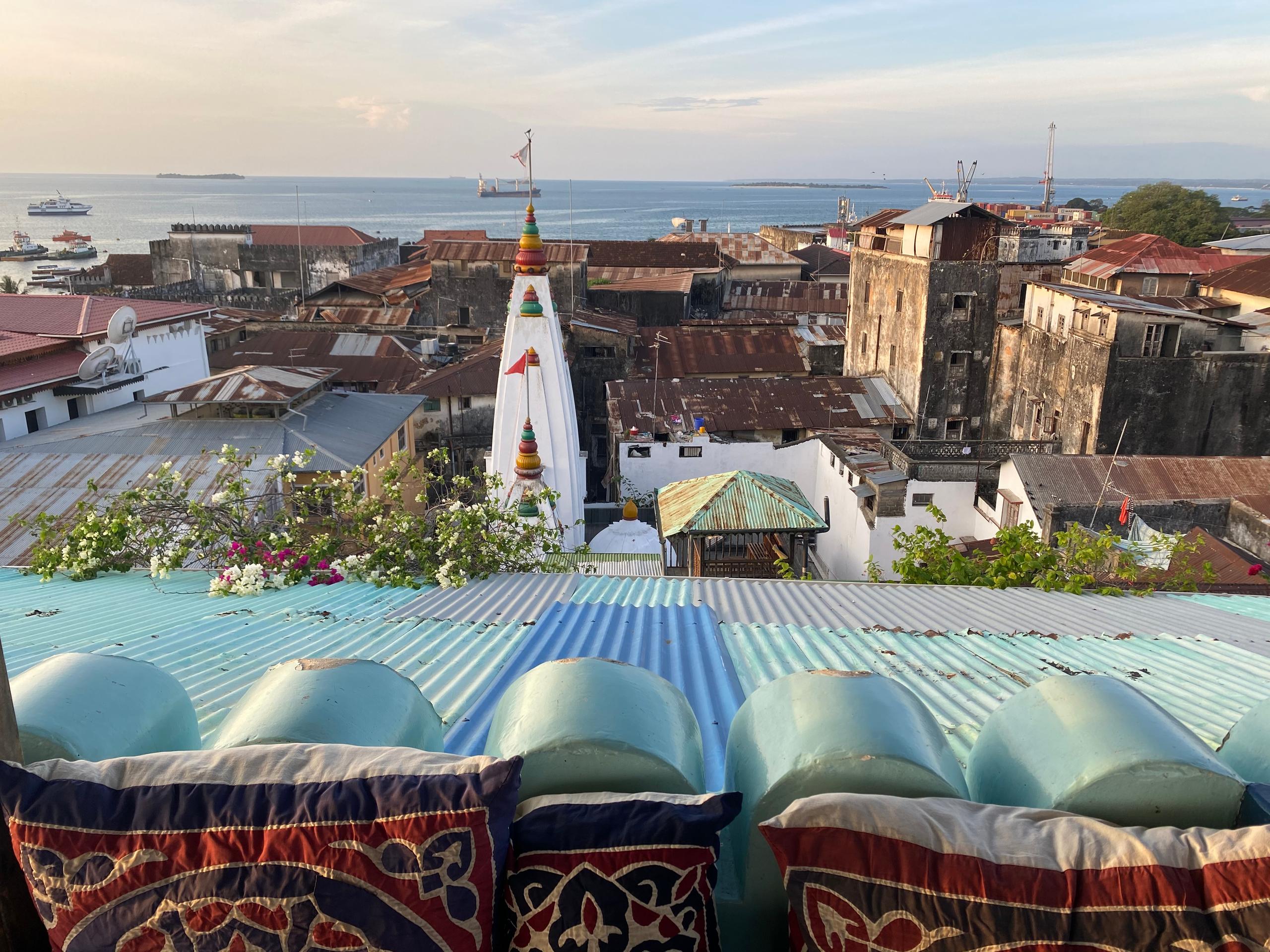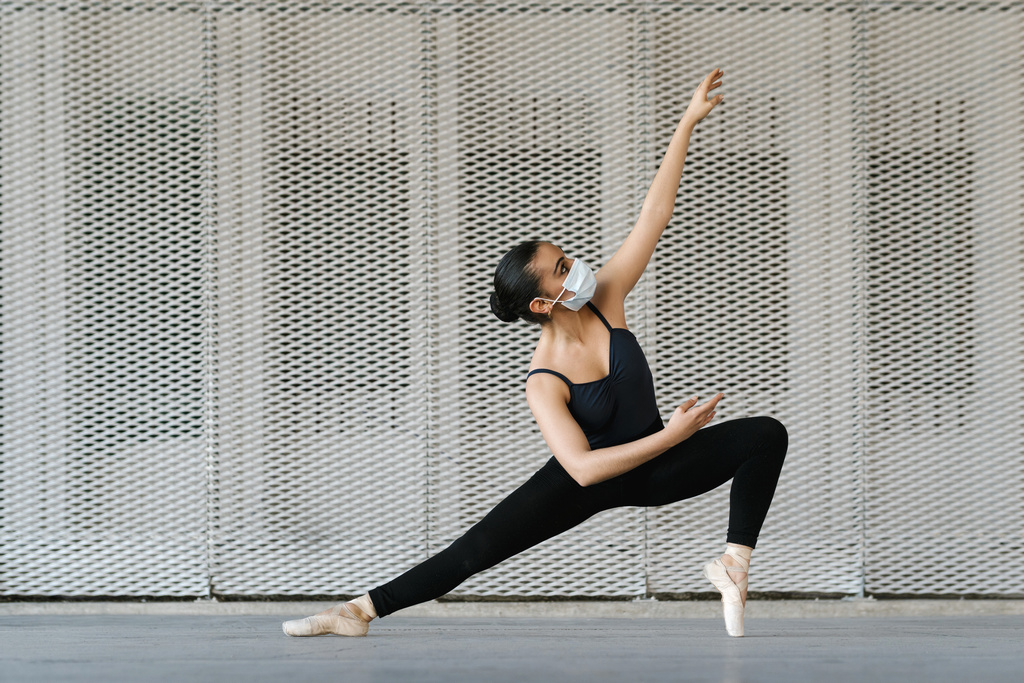Zanzibar, a refuge for restless Swiss during the pandemic

With Covid-19 bringing culture and human contact to a standstill in Europe, young Swiss people are heading to Zanzibar to pursue artistic or humanitarian projects.
Young Tanzanians sing and dance amidst the columns of the Mtoni ruins – remnants of a seaside palace near Stonetown built by the first Sultan of Zanzibar – while a cameraman shoots a video clip of their latest song. In the distance, the roar of a thunderstorm adds an unexpected bass note.
The place is magnetic. A few hundred metres away, two thirty-somethings from Zurich have come to shoot the video clip for Jasmin Feierabend, a singer who is well established in German-speaking Switzerland.
“In Zurich I have a catering business, I do street food and music, but with the coronavirus everything is cancelled, so I decided to come to Tanzania, because it’s one of the only countries in the world where there is no test requirement,” says Feierabend.
Tanzanian President John Magufuli – who was officially declared dead on March 17 after days of rumours that he was suffering from Covid-19 – had announced last April that the country had beaten the virus through prayer, fasting and medicinal plants. But since February, Tanzania has half-heartedly acknowledged the presence of the coronavirus that also led to the death of the vice-president of the Zanzibar archipelago, Seif Sharif Hamad.
Concern about the pandemic was previously absent. Feierabend recalls a New Year’s Eve party at Kendwa Rocks, a popular beach resort in northern Zanzibar. Everyone felt alive and vibrant, free from the fear of the coronavirus, she said.
“That’s where I met Said, a film producer who saw me singing and pushed me into a recording studio, which is also the headquarters of Zanzibar television. We started shooting. In a short time, we composed two songs and now we are going to shoot the music video for one of them.”

Is she not afraid of the coronavirus?
“No, here everyone is alive and I chose to live too. I’m sure I have a very strong immune system and I know I’m even stronger when I’m happy. I can’t imagine staying in my apartment. Life is in Africa, especially in Tanzania. I see how people live day to day, it’s extreme!”
Escaping division and fear in Switzerland
Rendel Arner is in charge of the decoration on the set. She is a sports teacher and artist in Switzerland, which includes dabbling in bodypainting – a banned activity now because body contact is involved.
“I am lucky, because I am a teacher and have an income, but psychologically I needed to find a balance and express myself. I wanted to escape the fear in Switzerland.”
After a restorative stay in Zanzibar, Arner hopes to pass on her good vibes in Switzerland.
“Many of my artist friends are in a fog and don’t know where they are going.”
And what about the risk of catching Covid-19?
“I’m not afraid of the coronavirus. I know it exists. I’ve had family members die from it. We are going to have to live with this virus. A society doesn’t live on precautions alone, it lives on caring for each other. Fear prevents people from finding solutions.”
Helping hand
In the end, the storm that threatened the morning shoot did not break. Instead a light breeze carries the notes of the thaarab, the traditional music played by the Dhow Countries Music Academy, the only music school on the island. On the roof terrace of the Emerson, the former palace of a rich Swahili merchant transformed into a charming hotel, the orchestra stops regularly to give way to the call to prayer from the city’s countless mosques. Then, the bells of the Hindu temple mingle with those of the two churches in the square, where African, Arab, Indian and Persian influences have mingled for centuries.

Sitting on the ground, on cushions embroidered in oriental style, the muzungu (foreigners) let themselves be carried away by the magic of the place, while some dhows – boats with a distinctive white triangular sail – pass slowly along the port.
Among them is Andreas, a 22-year-old from Zurich who spent three months in Tanzania as a volunteer.
“I’m doing my gap year, and Tanzania was the only place in the world where there were no restrictions,” he says. “I decided to come as a volunteer to work with the local communities and do something useful.”
Since the death of Zanzibar’s vice-president, the Swiss volunteer has felt that people are starting to ask questions about the coronavirus.
“Things are changing. It’s not extreme, but a bit strange,” he says.
Alive and kicking!
In February, the Hemerson Foundation held its annual Sauti Za Busara event, an African music festival in Zanzibar. The slogan for this year’s festival was Alive and kicking!
“We pay tribute to the victims of the pandemic around the world and to the health workers. But in this gloomy context, it seems more important than ever to show that life goes on,” announced DJ Youssouf from England, the organiser of the event who has been living in Zanzibar for 20 years.
For two days, a large but not stifling, crowd of foreigners and locals swayed to the sound of traditional and modern African music. It was an opportunity for two muzungu dressed in traditional garments to test their African dance skills. They moved with such ease that a circle formed around them. Everyone, Tanzanians and muzungu alike, was in awe of the Swiss duo Feierabend and Arner.
Correction: A previous version of this article had misspelt Rendel Arner’s name as Rendel Arnel.
In Tanzania, Covid-19 officially did not officially exist until February 21 this year. After 509 cases appeared last spring, President John Magufuli declared three days of prayer and fasting. He called on citizens to use medicinal plants, only to declare that the virus had disappeared.
His death at the age of 61 coincided with the outbreak of a second wave of coronavirus infection. Tanzania’s Vice President Samia Suluhu Hassan will become the country’s first female head of state. She is 61 years old and comes from the semi-autonomous archipelago of Zanzibar.
Tanzanians are wondering what she will carry over from Magufuli, nicknamed “the Bulldozer” for the major infrastructure projects and the fight against corruption that he undertook. His political legacy was tarnished by growing authoritarianism and his denial of the coronavirus.

In compliance with the JTI standards
More: SWI swissinfo.ch certified by the Journalism Trust Initiative



Join the conversation!